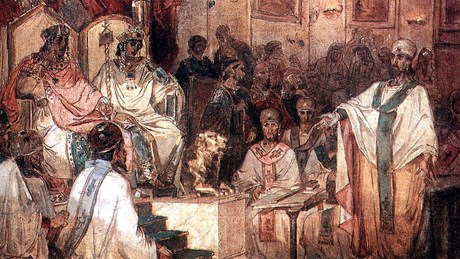James K.A. Smith wants to focus on the creeds, not sexuality. But there’s more to it than that.

Is affirming same-sex sexual relationships as righteous before God a heresy? Even if you believe it’s un-Biblical, are heresy and orthodoxy even the right categories for addressing the problem?
Over the weekend, philosopher and Calvin College professor James K. A. Smith argued that recent use of the words orthodoxy and heresy in debates about sexual ethics surrounding same-sex marriage is a selective and illegitimate expansion of the terms. Instead, we should reserve the language of orthodoxy and heresy for those beliefs which are “conciliar,” and “rooted in, and measured by, the ecumenical councils and creeds of the Church (Nicaea, Chalcedon)” because they refer to the fundamental truths of God’s triunity, the resurrection, the virgin birth, and so forth.
In contrast to this ideal, Smith says these terms have been reduced from this creedal basis to a single issue: “a particular view of sexuality and marriage.” He deems this development, “recent, innovative, and narrow,” symptomatic of a modern tendency to reduce Christianity to its morality. Indeed, unless we’re careful, the term orthodox will simply become the adjective we append to any issue we personally find important, thereby writing off “swaths of Christians who affirm conciliar orthodoxy” and closing down conversation in the church.
Predictably, this argument set off some discussion on the internet. Notable entries include Alastair Roberts’s argument that Smith has truncated the notion of creedal orthodoxy, and Alan Jacobs’s defense of Smith against Roberts and other critics, which Smith himself has commended. No doubt more entries will come.
Before proceeding with my own judgments, …
Source: Christianity Today Most Read